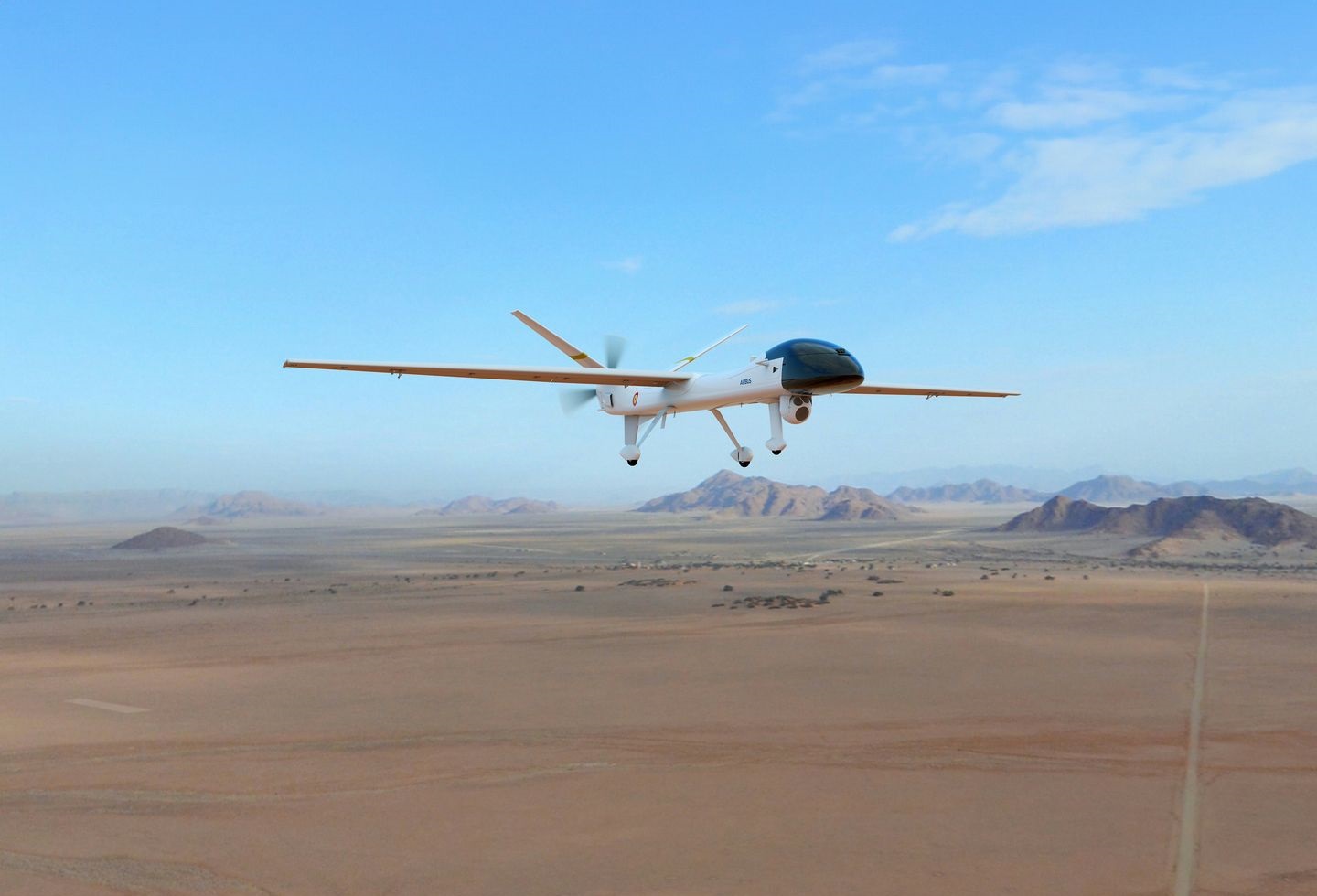Airbus has signed a contract with the Spanish Ministry of Defence for the development and acquisition of SIRTAP, a High Performance Tactical Unmanned Aerial Systems (UAS), that will reinforce the tactical capabilities of the Spanish Army and the Air and Space Force. The contract for this advanced system will be awarded to Airbus Defense & Space, with an estimated value of 595,000,000 euros. This contract includes a total of nine systems, each consisting of three unmanned aerial vehicles and one ground control station. Furthermore, two simulators will be supplied to train the Spanish Armed Forces. In the future, this tactical UAS will be able to operate jointly with other platforms to be integrated into a system of systems.
SIRTAP, with a payload of more than 150kgs, has been designed for advanced surveillance, intelligence and reconnaissance missions, both over land and at sea. A range of more than 2,000km and an endurance of more than 20 hours will provide high flexibility and reactivity, allowing for day and night operations in the most demanding environments. Thanks to its state-of-the-art ice protection and high-temperature amplitude system, SIRTAP can operate flawlessly under any weather conditions, with a temperature range spanning from -40 C to +50 C. With an impressive endurance of over 20 hours and the ability to fly at an altitude of 21,000 feet, this tactical UAS is well-suited for day/night and maritime Intelligence, Surveillance, and Reconnaissance (ISR) missions, enabling rapid response capabilities for close target inspection.

“This new technological milestone in the tactical UAS segment together with the Spanish Ministry of Defence, will reinforce national sovereignty. SIRTAP will be fully developed in Spain, integrating national capabilities. However, thanks to its versatility and the use of ITAR-free components, we also expect it to play a key role on the international market,” said Jean-Brice Dumont, Head of Military Air Systems at Airbus Defence and Space.
The system will be certified to fly in segregated airspace. The development of SIRTAP will bring the national industry key experience and competences in the field of Remote Carriers for FCAS. SIRTAP is poised to revolutionize the high-end tactical UAS segment with its dual applications, catering to a wide range of missions tailored to the specific operational requirements of institutional and governmental customers. One of the key advantages of SIRTAP is its adaptability for transportation. The wings and rotor can be easily dismounted, enabling transportation via standard containers both on land and by air, utilizing transport aircraft like the C295, which can accommodate two SIRTAP units in a single flight. First flight of the SIRTAP prototype is expected to take place in 2025.

environments, thanks to an ice protection and high temperature amplitude systems. (Photo by Airbus)















